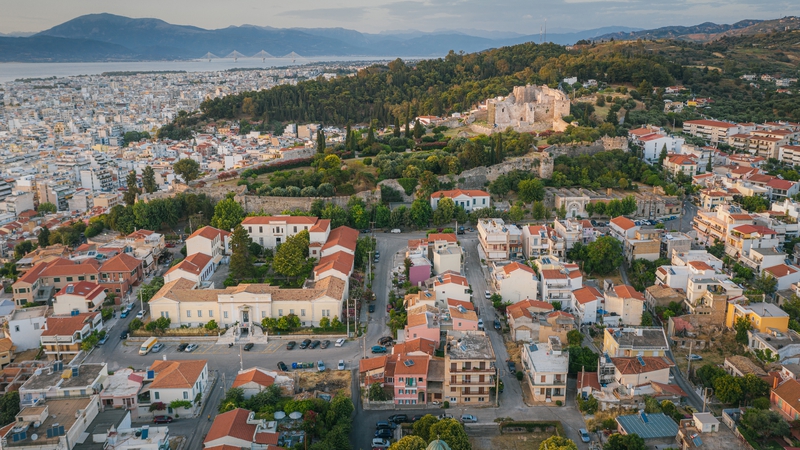A wildfire fuelled by strong winds broke out in the Greek port city of Patras, authorities have said, forcing a children's hospital and residents to evacuate.
Patients were transported to other facilities elsewhere in the city as 80 firefighters, 25 vehicles and ten water bombers battled the blaze.
"The evacuation went quickly. All the children in the hospital were transferred to other hospitals in the city," paediatrician Thanasis Filias told public broadcaster ERT.
Residents in three areas of Patras, Greece's third largest city located in the Peloponnese region, left their homes and took refuge in the city centre, civil protection officials said on X.
Other regions issued wildfire warnings as Greece faces what Climate Crisis and Civil Protection Minister Vassilis Kikilias has said is its "worst wildfire season in 20 years".
Besides the children's hospital, a retirement home and a medical centre also had to be evacuated as a result.
Fire brigade spokesman Vassilis Vathrakogiannis told ERT that no houses were threatened by the flames.
He said: "The front and its momentum have been contained."
Also speaking on ERT, Patras Mayor Kostas Peletidis likewise said that the situation was improving while cautioning that "it's not over, of course".
Other wildfires broke out across Greece, spurred by high winds and soaring temperatures.
The National Observatory of Athens recorded 37C in the region of Attica, which wraps around Athens.
Authorities warned against a "very high risk" of wildfires in six regions tomorrow, including in central Greece, Peloponnese, Attica and northeastern Aegean Sea islands like Lesbos.
Parts of the country will see temperatures exceed 40C with peaks at 41 to 42C and 39 to 49 kmph winds, according to weather forecaster Meteo.gr.
Strong winds and drought conditions have fanned fires in recent weeks in the area around Athens, on the island of Chios near the Turkish mainland and in Peloponnese.
While June temperatures in Greece normally do not surpass 31C, the country recorded in 2024 its hottest June since 1960, experts have said.
Scientists say climate change makes extreme weather events including heatwaves more likely, longer-lasting and more intense.

